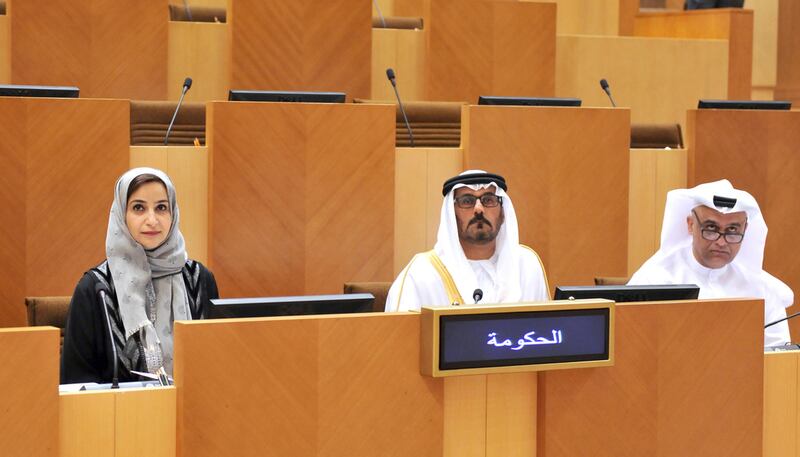ABU DHABI // Education authorities have promised to examine sharp fee increases at private schools after concerns were raised at the Federal National Council over rising family debt.
Hussain Al Hammadi, Minister of Education, said at the FNC session on Tuesday that the ministry would form a committee to examine private school fees, as “many private schools added unapproved charges”.
But Mr Al Hammadi questioned why Arabic-speaking parents would send their children to private schools, saying he sent his children to public schools.
“I would like to remind you that we have introduced a new model for the modern Emirati school, which came into effect this year and has proved its excellence,” he said. “We want public schools to be better than private schools.”
Fee increases are monitored by the Abu Dhabi Educational Council and Dubai’s Knowledge and Human Development Authority, said Jameela Al Muhairi, Minister of State for Public Education.
Schools that are considered weak are not allowed to raise fees and invalid charges can be refunded, she said.
Dubai member Azza bin Suleiman said that the fee increases needed to be addressed more seriously and that the ministry should be more vigilant with offenders, enforcing fines to prevent unauthorised rises.
“Parents should be made aware of what schools are rated weak and what are rated strong, so they will know they are receiving their money’s worth,” said Ms bin Suleiman.
Ratings are readily available in Abu Dhabi and Dubai, but parents in the Northern Emirates were not aware of them, she said.
“Just like hotels have stars, quality of an educational institution should also be clearly identified,” Ms bin Suleiman said.
She said that if an employee sent their children to a school that was rated as weak, some employers would only pay 50 per cent of the school fees.
Ms bin Suleiman called for weak schools to be put on probation until they improved and suggested a federal authority to deal directly with school evaluation and controlling fees.
Umm Abdulaziz, an Emirati mother whose three children attend the private Ras Al Khaimah Academy, said her husband had to take out loans because of high school fees. They have been in debt for the past five years.
“Everyone is suffering from it,” she said. “They are increasing the rates but the quality is not rising. Two years ago they increased by 20 per cent and the parents were all complaining.”
She believes that fees started to increase as parents in her community received education allowances and more enrolled their children in private schools.
Umm Abdulaziz said her husband did not receive a school fees allowance.
They wanted to send their children to private schools so they could master English, but now plan to move their daughter, in Grade 5, and son, in Grade 8, to public schools next year.
They have been paying Dh80,000 a year in fees, not counting other expenses such as textbooks and uniforms.
“Now, since Grade 7, they are charging Dh30,000. This used to be for high school,” Umm Abdulaziz said. “I don’t work and the costs became too much.”
Tareq Al Qubaili, an Emirati director at an energy company, said his children’s fees at the British International School were close to the Dh75,000 he paid for a master’s degree.
Mr Al Qubaili said that if his company stopped paying his children’s school fees, he would not be able to afford them.
“I am paying Dh60,000 for Grades 3 and 5. This is to show you how expensive it is,” he said. “Even if Adec is controlling, we as parents don’t have any clarity on the issue. Then all of a sudden we see inflating prices of private education in Abu Dhabi.”
hdajani@thenational.ae







